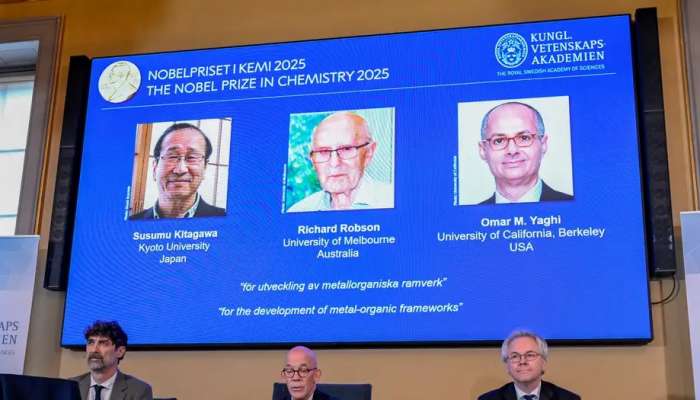
Stockholm: Susumu Kitagawa, Richard Robson and Omar M. Yaghi won this year's Nobel Prize in chemistry, the Royal Swedish Academy of Sciences announced Wednesday.
"The laureates have provided chemists with new opportunities for solving some of the challenges we face," the Academy said.
The new type of molecular architecture developed by the group allows for "large cavities in which molecules can flow in and out. Researchers have used them to harvest water from desert air, extract pollutants from water, capture carbon dioxide and store hydrogen," according to the award-giving body. Their research could provide solutions for combatting climate change.
"A small amount of such material can be almost like Hermione's handbag in Harry Potter. It can store huge amounts of gas in a tiny volume," Heiner Linke, chairman of the Nobel Committee for Chemistry, said during a press conference.
Second international trio in a row
Kitagawa is a Japanese chemist at Kyoto University, while UK-born Robson is at the University of Melbourne in Australia, and the American-Jordanian Yaghi teaches at the University of California, Berkeley.
Last year, the prize went to a US-UK team of scientists for their studies on protein structure prediction. David Baker, a biochemist at the University of Washington in Seattle, alongside Demis Hassabis and John Jumper, computer scientists at Google DeepMind, used artificial intelligence and other modeling techniques to design novel proteins, the building blocks of life.
This was the 117th awarding of the chemistry prize, which has been handed out every year with few exceptions since 1901. Only eight women have won the prestigious prize, which comes with a cheque for $1.2 million.
Kitagawa, Robson, and Yahgi will be officially handed their award at a ceremony in December.